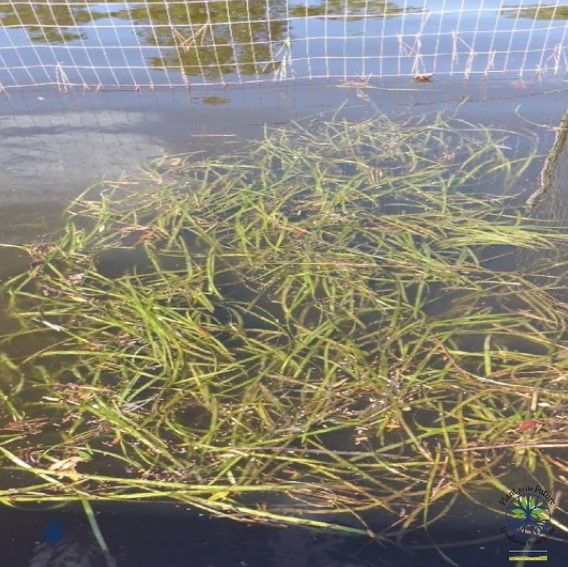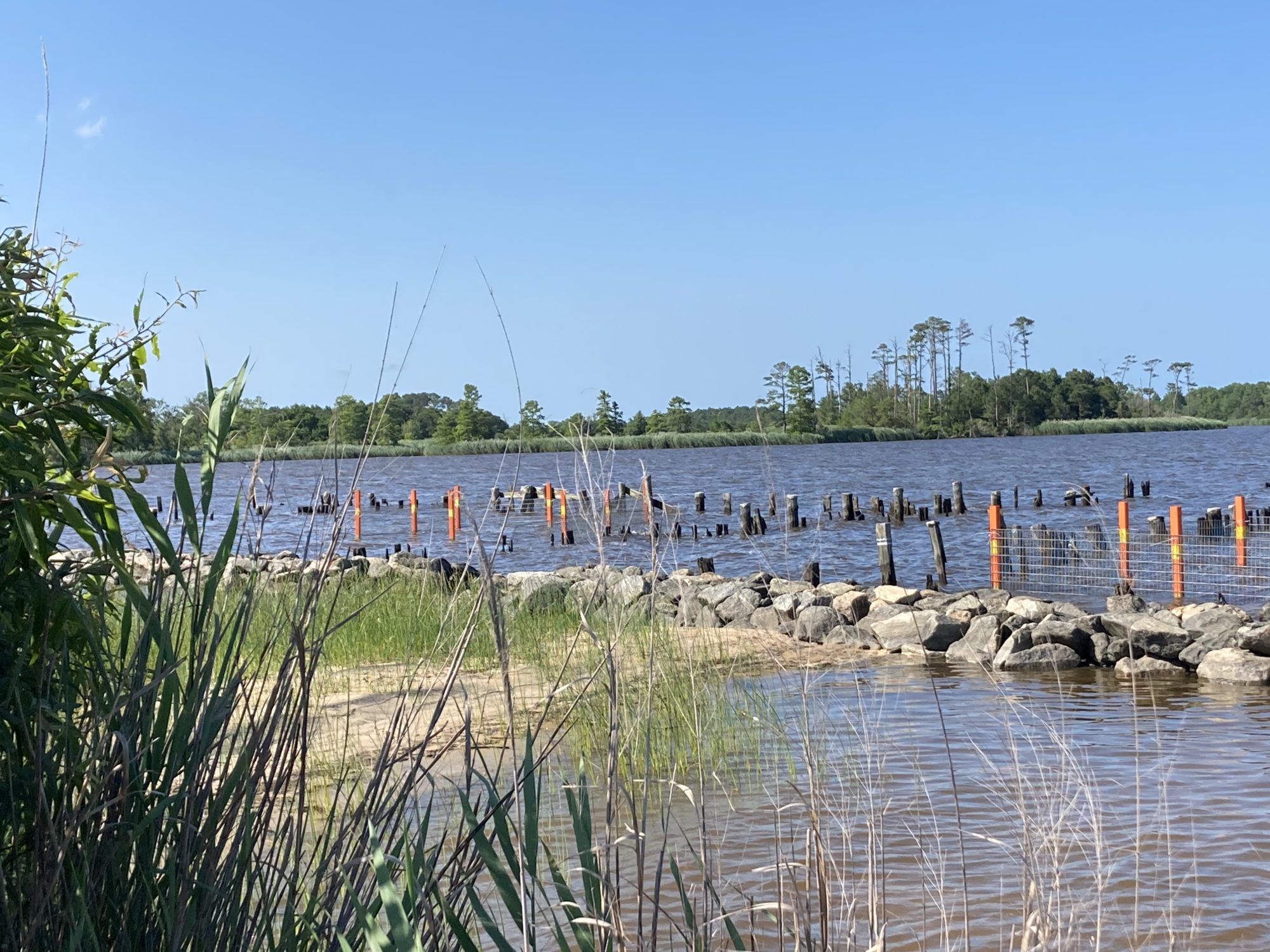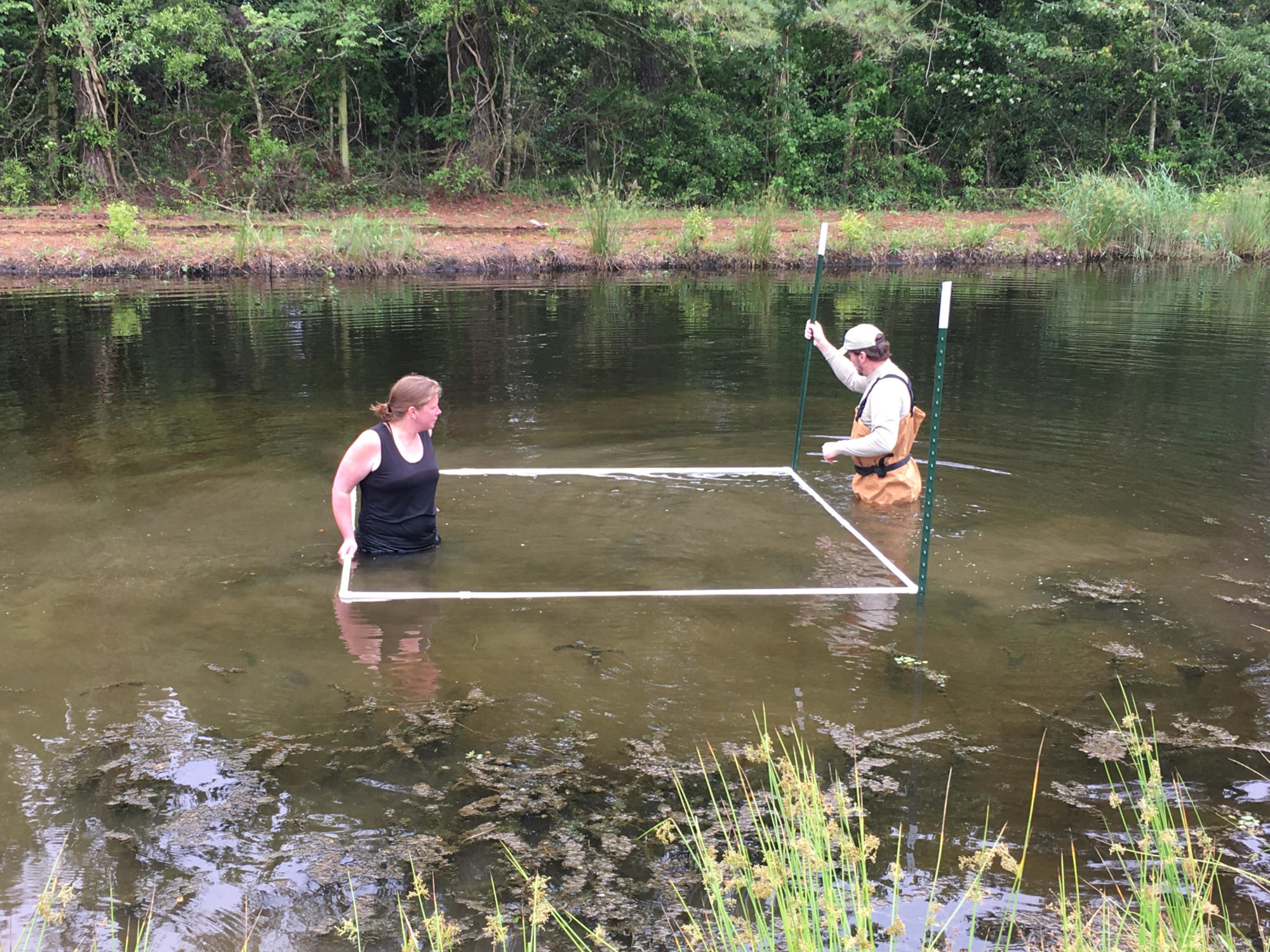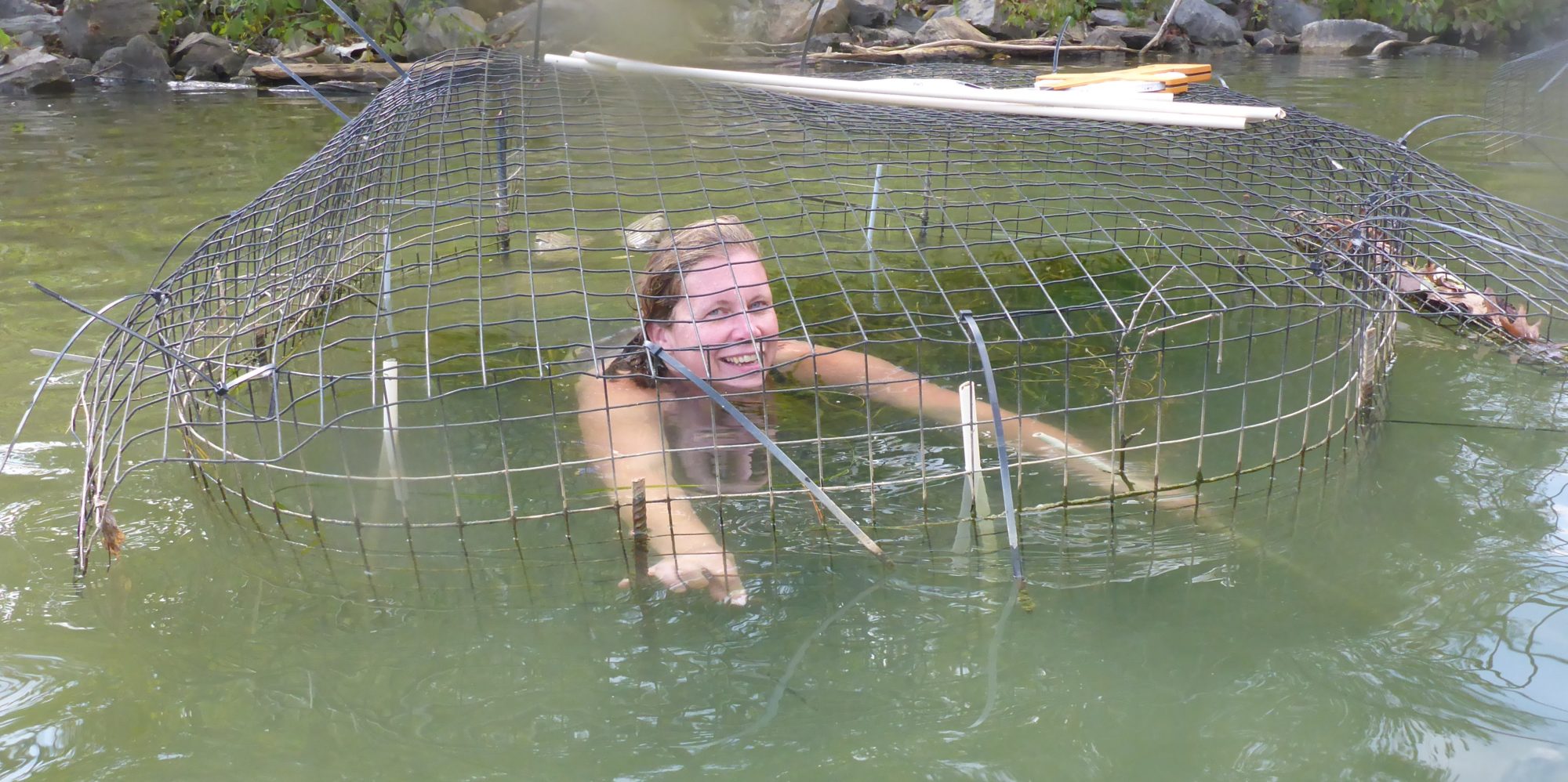
By Mary Reid Barrow
Virginia Tech research scientist Sara Sweeten and an underwater grass called wild celery have a special friendship.
Working with two dozen neglected wild celery plants that Sweeten found in a grow lab at the school several years ago, she may have found the key to bringing back Back Bay’s long missing underwater vegetation.
“I’ve never felt so strongly about a project before,” Sweeten said.
Over the past three years, she has been able to propagate and care for hundreds of wild celery plants and then transplant them to caged test plots in Back Bay and in freshwater areas in other states too. The plants have thrived.
Not only will Sweeten’s work be a plus for waterfowl, it also will help Virginia Beach and its efforts to mitigate the effects of sea level rise in Back Bay.
There were times In the late 1800s and early 1900s when the sky could be black with the ducks and geese flying over Back Bay, so thestories go.
The birds spent their winters here dining on copious amounts of underwater grasses, primarily the wild celery, that grew all over the bay and began disappearing in the 1960s.
For decades since, Back Bay lovers, whether scientists, fishermen, or waterfowl hunters, have tried to figure out why the grasses stopped growing and how to bring them back.
Enter Sara Sweeten and her wild celery buddies.
She raises them in an aqua culture center at Virginia Tech and transplants large mature plants to the bay. You can see Sweeten’s work from the shoreline along the rock wall at the Horn Point Kayak Launch in southern Virginia Beach.

Wild celery is no kin to the celery that adds crunch to your chicken salad and no kin to its look alike, eelgrass, that is found in salt water. But wildlife of all kinds love it and it is a strong plant that can stand up to adversity.
As of last October, Sweeten has planted almost 1800 square feet of big heathy wild celery plants in Back Bay. They continue to grow despite some harsh conditions, such as the battering they take against the rock sea wall at Horn Point or getting dried out several times because of extreme low wind tides.
Sweeten thinks planting mature plants that are tall enough to reach the sunlight they need to grow, despite Back Bay’s cloudy water, is one reason for her and the celery’s success.
Wild celery also continues to spread, despite the cloudy water, because it grows like the house plant we call a spider plant. That means little wild celery plants don’t suffer from the lack of sun, because they are attached to the tall mother plants that send the sun’s nourishment down to them.
Sweeten works with numerous individuals partners and organizations who help fund her work, groups like Back Bay Restoration Foundation, Back Bay National Wildlife Refuge, Virginia Department of Wildlife Resources and the City of Virginia Beach. Virginia Beach is funding this summer’s planting in the bay.
Many partners are part of the Back Bay Submerged Aquatic Vegetation Group, including Lynnhaven River NOW. LRNow and volunteers helped to install protective cages at seven locations and planted 186 sq ft of wild celery in the spring of 2020 and 2021. The photo below is of Sweeten and LRNow’s Vince Bowhers working on one of the cages on the bay.

But Sweeten could use more help. She would love to raise enough money for a summer technician to help with building cages and planting. Donations would be helpful, she said. She also would love the use of an out building with electricity and water near the bay that could be a staging area for growing grasses.
Sweeten also is looking for a convenient spot to park her camper in which she lives when she’s working in the field.
“Host a scientist for the summer,” she said, laughing.
And put out the welcome mat for wild celery’s return to Back Bay.
Sweeten can be reach at sweeten@vt.edu

Do you have a favorite tree or plant with a story to tell? What relationships have you observed between plants and critters? Who eats whom? Who has babies where? Send an email to maryreid@lrnow.org